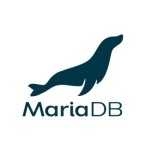What is good about SAP HANA is its simplicity and its flexibility.
Its in-memory capabilities are good, which is why many companies still use it.
SAP HANA is a very proprietary tool and there's not as much support available for it as there is for an SQL Server (which is more popular).
It requires some internal SAP knowledge to work with the tool and it's a completely graphical modeling kind of a system. You can't come in cold with no knowledge or understanding of the solution and think you can jump in and start working.
You have to work with the very few tools that are given to you. It could probably increase its flexibility and there could be more components added, which would make it more versatile. They could improve the solution by adding more components and by making it more feature-rich and including typical features that other more popular tools have.
There needs to be better support from the SAP support team. There needs to be more support for other programming languages like high-level C++, Java, or Python. That could be another improvement.
HANA needs more integration with open-source tools, and with general reporting and analytics tools that are out there on the market. Once again, more integration on so many levels would be amazing. It's very SAP-centric and very proprietary right now. There are ways to connect SAP HANA with many tools already, however, in particular with open-source tools, if there could be even more integration, that would be helpful.
There needs to be more data transformation and more ELT features that can be implemented in the view.
While I'm not exactly sure how long the company itself has used the solution, I've been dealing with it for four years at this point. It's been a while.
In terms of stability, I can't comment much. It depends on the underlying system and infrastructure, and it has the same kind of stability as any other on-premise solution. It doesn't have any cloud features such as multiple replication and multiple locations, et cetera. In that sense, it has the same stability as any other on-premise solution and does not guarantee any SLA.
In terms of scalability, it's quite scalable. We've used it for production solutions very often and from any number of users. Generally, there are a few hundred users or so. I have not really worked on an implementation that uses thousands of users or anything that big, so I can't really comment on massive scaling. However, if it's for enterprise applications that have a few hundred internal users, it's good.
The community support needs to be better. I haven't been impressed with it. In general, it just needs better support.
I have only worked on SAP and I haven't worked on other solutions.
I don't have information on the pricing, as that is an SAP and corporate-level agreement, which is not really known by all the in-house teams. I'm not really aware of the pricing. On the internet, I couldn't find much information about the cost of SAP HANA. I have heard that it is an expensive option. Being an enterprise-level solution, however, I don't have exact numbers.
I'm not really part of the decision making team or the architecture team. I do not know if my organization has a business relationship with SAP or not.
I'd rate the solution five out of ten.
In the case of enterprise projects, I've heard that SAP HANA is used very widely. I would say, in general, it would be good to explore other alternatives, and not just go with HANA. It would be good to explore big data alternatives that are out there. They might be a better fit. Databricks these days seems to be quite popular. It might be an interesting alternative for some organizations. Depending on the use case, I'd recommend that other alternatives should be considered. If it's a reporting solution that people are building, which is using a lot of SAP internal data, then SAP HANA is a good option. Otherwise, other alternatives are out there.















